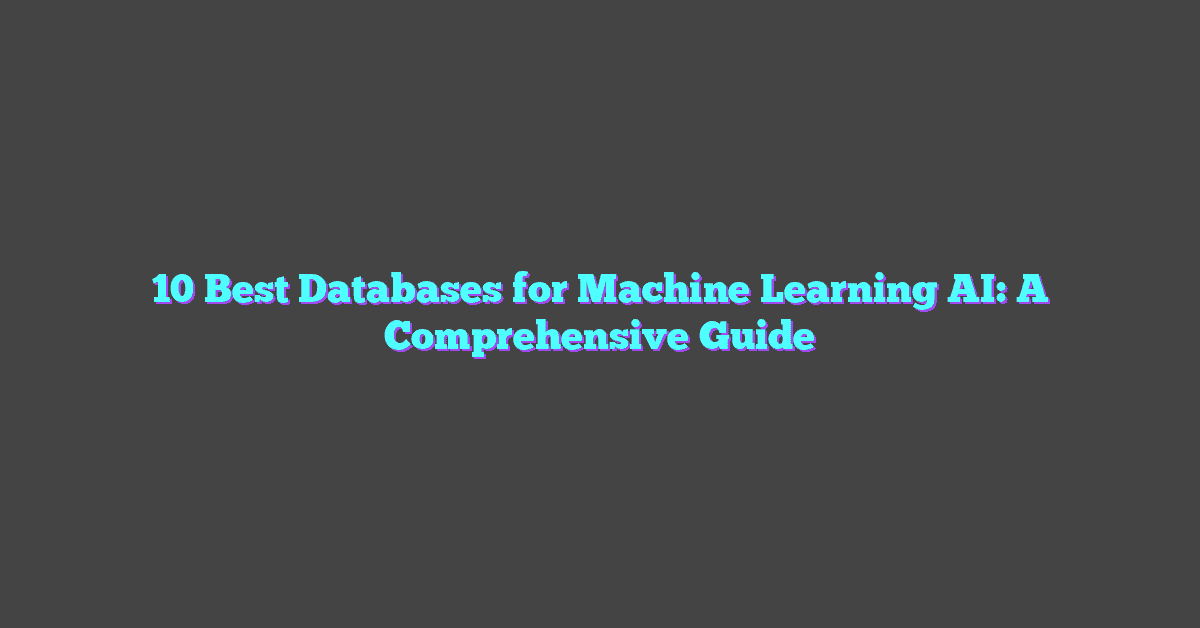In today’s fast-paced financial world, the idea of using artificial intelligence to trade stocks isn’t just a sci-fi fantasy—it’s a reality. AI-driven algorithms analyze vast amounts of data at lightning speed, making split-second decisions that can mean the difference between profit and loss. But is it really that simple?
Many wonder if these sophisticated systems can truly outsmart human traders or if they’re just another tool in the investor’s arsenal. Whether you’re a seasoned trader or just curious about the future of finance, exploring the role of AI in stock trading offers fascinating insights into how technology is reshaping the markets.
Exploring AI in Stock Trading
Artificial intelligence is revolutionizing stock trading by enabling rapid data analysis and decision-making. It’s fascinating to see how AI advances are impacting the financial markets and reshaping investment strategies.

What Is AI Trading?
AI trading refers to using algorithms and machine learning to analyze vast amounts of market data and execute trades. Traders utilize these systems to identify patterns, forecast trends, and automate the buying and selling of stocks.
AI trading leverages various technologies, such as natural language processing to analyze news articles, machine learning to identify complex patterns, and deep learning for high-dimensional data processing. These technologies work together to provide insights that human traders might miss.
Benefits of Using AI for Stock Trading
AI offers several advantages to stock trading:
- Speed: AI processes data quicker than humans, analyzing millions of data points in seconds. For example, algorithms can swiftly react to market changes and execute orders without delay.
- Accuracy: Algorithms reduce human error by basing trades on data-driven models. These models increase precision in predicting market trends and executing trades at optimal times.
- Consistency: AI systems operate 24/7, ensuring continuous monitoring of global markets. This constant vigilance allows traders to capitalize on opportunities as soon as they arise.
- Scalability: AI can manage and analyze large datasets, making it suitable for institutional investors handling vast portfolios.
- Adaptability: Machine learning algorithms can adapt to new data, improving their predictive capabilities over time. Adaptive models adjust to changing market conditions and maintain relevance.
By harnessing AI’s speed, accuracy, and adaptability, traders can enhance profitability and manage risks more effectively. It’s clear that AI is not just a tool but a game-changer in stock trading.
How AI Is Changing the Stock Market
Artificial Intelligence (AI) has significantly impacted the stock market landscape by introducing innovative methodologies that enhance trading efficiency and accuracy. By leveraging AI, traders navigate complex market dynamics more effectively.
AI Algorithms and Prediction Models
AI algorithms and prediction models are fundamental components reshaping stock trading. These algorithms process vast amounts of historical market data to identify patterns and trends. For example, machine learning models like Random Forests and Neural Networks analyze this data to predict stock price movements.
Prediction models, powered by deep learning, can forecast stock price fluctuations with remarkable accuracy. These models learn from historical prices, trading volumes, and other key indicators to provide actionable insights. Traders use these insights to make informed decisions, improving their investment strategies.
Real-Time Data Analysis with AI
Real-time data analysis with AI offers another dimension of advantage in stock trading. Advanced AI systems analyze live market data as it streams, identifying opportunities and risks instantly. For instance, AI platforms like Kensho and Bloomberg’s Terminal utilize natural language processing to interpret news and financial reports in real-time, impacting stock prices.
By processing real-time data, AI systems provide traders with instant alerts and automated trading options. This immediacy allows for rapid response to market changes, ensuring traders capitalize on favorable conditions and avoid potential losses.
In this dynamic era, AI continues to evolve, bringing transformative changes to stock trading practices through sophisticated algorithms and real-time analytics.
Key Players in AI Stock Trading
Several companies lead the way in AI stock trading, employing varied and advanced technologies. These entities pioneer innovative solutions, driving the industry forward.
Leading Companies and Technologies
Numerai: Uses a decentralized network of data scientists to improve the performance of its hedge fund. Participants build machine learning models, and Numerai integrates the best ones to enhance trading strategies.
Kavout: Employs an AI-driven platform called Kai, which analyzes vast amounts of data to generate stock rankings. This tool helps investors make informed decisions based on aggregated insights.
Two Sigma: Utilizes advanced machine learning models to analyze millions of data points daily. Their systematic approach to trading uses algorithms that continually learn and adapt to market changes.
Rebellion Research: Implements machine learning to navigate different market conditions. Its AI system, “Rebellion Research AI,” focuses on long-term investment strategies, meticulously analyzing global economic data.
Sentient Technologies: Specializes in evolutionary computation and deep learning. It runs numerous simulations to optimize trading algorithms, aiming to predict stock movements accurately.
Case Studies: Success Stories
Numerai’s Hedge Fund Performance: By leveraging the collective intelligence of data scientists globally, Numerai’s hedge fund has shown consistent performance improvements. Its unique model has attracted significant attention in the hedge fund industry.
Two Sigma’s Predictive Models: Two Sigma’s ability to process and interpret massive datasets has led to considerable success. Their predictive models have consistently outperformed traditional strategies, demonstrating the power of AI in trading.
Rebellion Research’s Long-Term Gains: Rebellion Research’s AI system has maintained steady growth, even in volatile markets. Its focus on long-term strategies has led to significant returns, proving its effectiveness in diverse economic conditions.
These companies and technologies showcase the transformative potential of AI in stock trading, making significant strides in optimizing trading strategies and improving market performance.
Ethical and Regulatory Considerations
AI in stock trading offers numerous benefits, but ethical and regulatory considerations come to the forefront. Proper frameworks ensure AI applications remain beneficial and fair.
Challenges of AI in Trading
AI presents unique challenges in stock trading. Algorithms may perpetuate biases inherent in training data. If data used for AI models has historical biases, AI can reinforce these biases in decision-making. Ethereum-based smart contracts and blockchain technologies offer transparent transaction methods which may reduce bias, but they don’t eliminate it entirely.
Another challenge involves AI’s complexity and lack of transparency. Machine learning models, particularly deep learning, often operate as “black boxes,” making it difficult to understand their decision-making processes. This opacity raises ethical concerns as traders and regulators might not fully grasp how decisions are made. Models should have explainable AI components to counteract this issue, enabling better insight into their functionality.
Regulatory Landscape for AI Trading
Regulation in AI trading remains crucial. Various regulatory bodies globally, like the SEC in the US and ESMA in the EU, strive to create guidelines ensuring fair and transparent AI usage in finance. These regulations require firms to maintain a balance between innovation and compliance.
One key aspect involves algorithmic accountability, ensuring AI systems adhere to ethical standards. Regulators mandate periodic audits of AI systems to evaluate their performance and impact. Financial services firms must document and archive decision-making processes to meet these regulatory standards.
Data privacy also plays a significant role. Regulations such as GDPR in Europe and CCPA in California impose strict guidelines on how data is collected, stored, and used. Firms must ensure their AI trading strategies comply with these data protection laws to avoid penalties.
Regulatory bodies might also impose trading limits on AI-driven platforms to prevent market manipulation and flash crashes. By doing so, they aim to uphold market stability while enabling the proliferation of innovative AI trading technologies.
Navigating ethical and regulatory landscapes is vital for companies leveraging AI in stock trading. Implementing clear guidelines and robust frameworks ensures AI technologies serve all stakeholders fairly and effectively.
Conclusion
AI’s integration into stock trading is undeniably transformative, offering unprecedented speed, accuracy, and adaptability. With the power to analyze vast amounts of data and predict market trends, AI-driven platforms from key industry players are reshaping the trading landscape.
However, ethical and regulatory considerations can’t be overlooked. Ensuring fair and transparent AI applications requires robust frameworks and continuous oversight. Companies must navigate these challenges to harness AI’s full potential while maintaining market integrity.
As AI continues to evolve, its role in stock trading will likely expand, promising exciting advancements and opportunities for traders and investors alike.
Frequently Asked Questions
What is AI in stock trading?
AI in stock trading uses algorithms and machine learning to analyze market data, identify patterns, forecast trends, and automate stock trading decisions. These technologies enhance the accuracy and speed of trading actions.
How do AI algorithms improve stock trading?
AI algorithms improve stock trading by rapidly analyzing large datasets, identifying patterns and trends, and making data-driven decisions. This leads to increased accuracy, speed, and consistency in trading.
What technologies are used in AI stock trading?
Technologies used in AI stock trading include natural language processing (NLP), machine learning (ML), and deep learning (DL). These help in processing market data and optimizing trading decisions.
Who are the key players in AI stock trading?
Key players in AI stock trading include Numerai, Kavout, Two Sigma, Rebellion Research, and Sentient Technologies. They drive innovation with AI-driven platforms and machine learning models.
What are the benefits of AI in stock trading?
Benefits of AI in stock trading include increased speed, accuracy, consistency, scalability, and adaptability in trading processes. AI systems can process vast amounts of data and adapt to market changes faster than human traders.
What are the ethical considerations of AI in stock trading?
Ethical considerations include addressing biases from training data, ensuring transparency in AI decision-making, and developing explainable AI components. It’s crucial to ensure fair and unbiased AI applications.
What regulatory bodies oversee AI in stock trading?
Regulatory bodies like the SEC (U.S. Securities and Exchange Commission) and ESMA (European Securities and Markets Authority) work on guidelines to ensure fair and transparent AI usage in finance.
What regulations are in place for AI trading?
Regulations focus on algorithmic accountability, periodic AI system audits, data privacy compliance, and preventing market manipulation. These measures help ensure fair and responsible AI trading practices.
Why is transparency important in AI trading?
Transparency is essential in AI trading to understand how decisions are made, ensure fairness, and build trust among stakeholders. Explainable AI helps show the reasoning behind trading actions.
How can companies ensure ethical AI usage in stock trading?
Companies can ensure ethical AI usage by developing transparent systems, conducting regular audits, and implementing explainable AI components. Adhering to regulations and guidelines is also crucial for fair practice.




